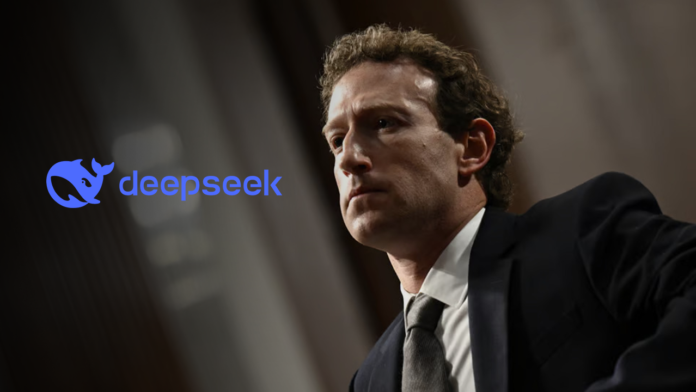Meta, led by CEO Mark Zuckerberg, has reportedly activated four “war rooms” consisting of top engineers to address the rapid advancements made by Chinese AI startup DeepSeek. According to a report by The Information, DeepSeek’s newly launched AI model, R1, has demonstrated performance comparable to leading models like ChatGPT, but at a significantly lower cost.
Meta Scrambles to Understand DeepSeek’s AI Efficiency
This unexpected breakthrough has raised concerns about the massive investments that U.S. tech companies, including Meta, have poured into artificial intelligence. As a result, Meta’s AI team is now on high alert.
Matthew Oldham, Meta’s Director of AI Infrastructure, reportedly informed colleagues that DeepSeek R1 could even outperform the upcoming version of Meta’s Llama, which Zuckerberg previously announced would launch in early 2025.
Four AI War Rooms with Strategic Objectives
Meta’s four emergency AI response teams are tackling different aspects of the DeepSeek challenge:
- Cost Efficiency Analysis – Two teams are investigating how DeepSeek reduced AI model training and operational costs, aiming to apply similar strategies to Meta’s Llama AI.
- Data Investigation – The other two teams are examining DeepSeek’s training data sources and working on restructuring Llama’s architecture to integrate the strengths of DeepSeek’s approach.
Despite growing speculation, Meta has yet to issue an official statement on the matter. However, the company did confirm to The Information that it routinely evaluates competitive AI models as part of its development process. Meta also reaffirmed its commitment to open-source AI innovation and expressed enthusiasm for the upcoming release of Llama 4.
Meta’s $65 Billion AI Investment vs. OpenAI’s $500 Billion “Stargate” Project
Zuckerberg recently announced that Meta plans to invest $65 billion in AI initiatives in 2024, including building massive data centers and expanding AI-related hiring.
This news follows OpenAI’s revelation of Project Stargate, a $500 billion AI infrastructure initiative supported by SoftBank, Oracle, and the U.S. government, which aims to construct dozens of new AI data centers across the United States.
DeepSeek’s Rise: A Challenge to U.S. AI Dominance?
DeepSeek’s rapid emergence has sparked debates over the sustainability of large-scale AI investments and whether cheaper, more efficient AI models from China could disrupt the dominance of U.S. tech giants.
As AI competition heats up, Meta’s response to DeepSeek R1 could determine the future of its Llama AI models and its role in the global AI race.



